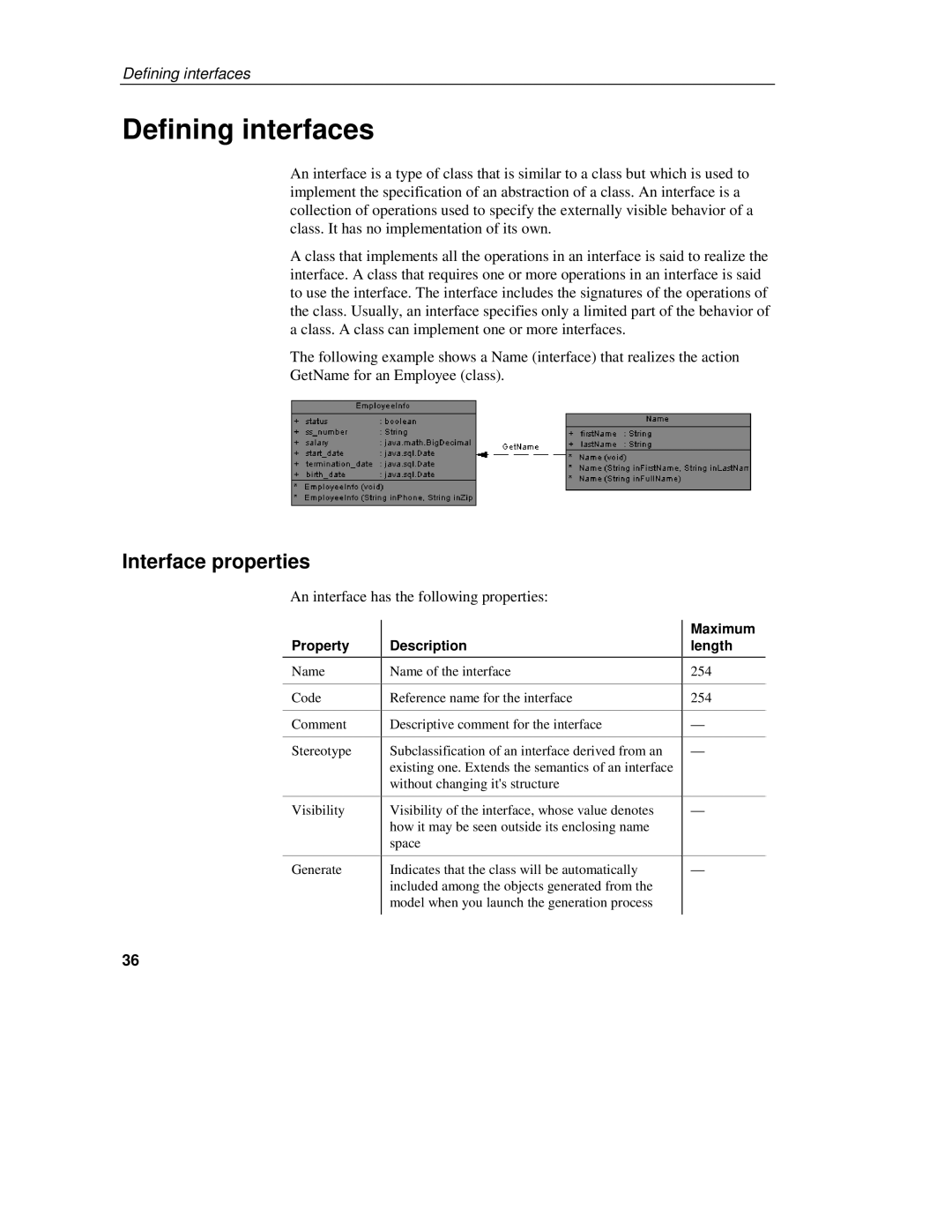
Defining interfaces
Defining interfaces
An interface is a type of class that is similar to a class but which is used to implement the specification of an abstraction of a class. An interface is a collection of operations used to specify the externally visible behavior of a class. It has no implementation of its own.
A class that implements all the operations in an interface is said to realize the interface. A class that requires one or more operations in an interface is said to use the interface. The interface includes the signatures of the operations of the class. Usually, an interface specifies only a limited part of the behavior of a class. A class can implement one or more interfaces.
The following example shows a Name (interface) that realizes the action
GetName for an Employee (class).
Interface properties
An interface has the following properties:
Property | Description |
Name | Name of the interface |
|
|
Code | Reference name for the interface |
|
|
Comment | Descriptive comment for the interface |
|
|
Stereotype | Subclassification of an interface derived from an |
| existing one. Extends the semantics of an interface |
| without changing it's structure |
|
|
Visibility | Visibility of the interface, whose value denotes |
| how it may be seen outside its enclosing name |
| space |
|
|
Generate | Indicates that the class will be automatically |
| included among the objects generated from the |
| model when you launch the generation process |
|
|
Maximum length
254
254
—
—
—
—
36
